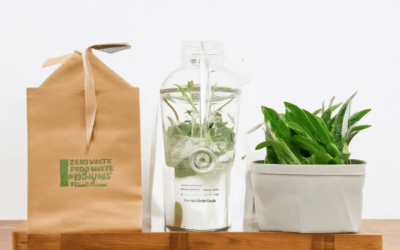Embracing a sustainable lifestyle for beginners can seem overwhelming at first, but with the right guidance, it becomes a rewarding journey toward a healthier planet and a better quality of life. Whether you’re new to the concept of sustainability or looking to deepen your understanding, this guide offers practical tips, real-life examples, and actionable steps to help you transition into a more eco-conscious way of living. From reducing waste and conserving resources to adopting sustainable habits in daily life, this article explores everything you need to know to begin your sustainable lifestyle journey. By focusing on simple changes and building sustainable practices, you can make a meaningful impact while creating a lifestyle that aligns with your values. Let’s dive into the essential tips, examples, and insights that will help you get started.
Key Takeaways
– Adopt sustainable living principles by focusing on community-building, reducing your ecological footprint, and supporting ethical industries.
– Prioritize the 3Rs—Reduce waste, Reuse items creatively, and Recycle responsibly to contribute to a healthier planet.
– Explore sustainability careers such as Eco-Lifestyle Coach, Green Architect, or Renewable Energy Engineer to make a meaningful impact.

How to Start Learning About Sustainability
Sustainability is a broad concept that encompasses various aspects of living in harmony with the Earth. To begin your journey, it’s essential to understand its fundamental principles and integrate sustainable practices into your daily life.
Understanding the Basics
Sustainability revolves around three primary pillars: environmental protection, social equity, and economic development. These interconnected components ensure that current generations meet their needs without compromising the ability of future generations to do the same.
Starting Small
Begin by making small, manageable changes in your daily routine:
- Reduce Waste: Use reusable items like cloth bags, water bottles, and containers to minimize plastic use.
- Conserve Energy: Opt for energy-efficient appliances and turn off lights when not in use.
- Eco-Friendly Transportation: Consider carpooling, biking, or walking to reduce carbon emissions.
Educate Yourself
Explore reputable resources to gain knowledge and inspiration:
- Eco Planeta Verde: Visit [Eco Planeta Verde](https://ecoplanetaverde.com/) for guides on sustainable living and eco-friendly practices.
- Greenpeace and WWF: Check their websites for comprehensive information on global sustainability efforts and volunteer opportunities.
- Courses and Workshops: Enroll in online courses on platforms like Coursera or Udemy to deepen your understanding of sustainability.
Engage in Community Activities
Join local or international environmental groups to contribute to meaningful projects:
- Volunteer: Participate in clean-up drives, tree-planting events, or habitat restoration projects.
- Advocate: Support causes through social media campaigns, petitions, or community outreach programs.
Adopt Sustainable Lifestyles
Make intentional choices that align with sustainability goals:
- Eat Sustainably: Choose locally-sourced, seasonal foods and reduce meat consumption.
- Support Ethical Brands: Purchase products from companies committed to fair trade and environmental responsibility.
Stay Informed
Keep up with the latest trends and innovations in sustainability by following trusted sources and influencers:
- News Outlets: Regularly check articles on sustainability initiatives and policies.
- Influencers: Follow individuals and organizations actively contributing to environmental causes.
Prioritize and Adapt
Focus on gradual changes and remain open to learning from others:
- Start with One Area: Begin with waste reduction before moving on to energy conservation.
- Seek Feedback: Engage with communities to refine your sustainability practices and gather new ideas.
Remember, sustainability is a lifelong journey. Each small step contributes to a healthier planet, and collective efforts can create significant positive impacts.
What are some examples of sustainable lifestyle practices?
We believe in embracing a holistic approach to sustainable living that touches every aspect of our daily routines. Here are some practical examples:
- Diet and Food Choices
- Reduce meat consumption and opt for plant-based meals.
- Choose locally-sourced and seasonal foods to minimize carbon footprint.
- Incorporate sustainable seafood options certified by organizations like MSC.
- Transportation
- Use public transit, bike, or walk whenever possible.
- Carpool or share rides to reduce emissions.
- Consider an electric vehicle for future transportation needs.
- Home Energy
- Install solar panels to power your home sustainably.
- Use energy-efficient appliances and LED lighting.
- Set up a smart thermostat to manage energy usage.
- Consumption Patterns
- Minimize waste by practicing the 5 Rs: Reduce, Reuse, Recycle, Repurpose, Rot (compost).
- Shop secondhand or buy from local artisans and small businesses.
- Support zero-waste products and refillable containers.
- Community Involvement
- Join local sustainability groups or volunteer for clean-up efforts.
- Participate in community gardens or urban farming initiatives.
- Advocate for policies that support renewable energy and green technologies.
By integrating these practices into our lives, we can create a more sustainable and healthier world for future generations. Explore more tips and resources on our sustainable living page and discover how you can make a positive impact today.

How Can I Live a Sustainable Lifestyle?
Sustainable living is a holistic approach that encompasses various aspects of daily life, from energy consumption to waste management. Here’s a structured guide to help you begin your journey toward a more eco-friendly lifestyle:
- Reduce Waste:
- Minimize plastic use by opting for reusable items like glass bottles and metal containers.
- Recycle properly and compost organic waste to convert it into nutrient-rich soil.
- Consserve Energy:
- Install energy-efficient appliances and improve home insulation to reduce electricity usage.
- Consider solar panels, especially if you receive government incentives or rebates.
- Eco-Friendly Transportation:
- Carpool, bike, or use public transport to decrease carbon emissions.
- Explore electric or hybrid vehicles for lower emissions.
- Support Local Economies:
- Purchase locally-grown, seasonal foods from farmer’s markets or Community Supported Agriculture (CSA) programs.
- Buy fair trade and organic products to support ethical practices.
- Healthy Home Habits:
- Use natural cleaning products and non-toxic personal care items.
- Fix leaks promptly to conserve water and reduce utility bills.
- Community Involvement:
- Volunteer for clean-up initiatives or join local sustainability groups.
- Spread awareness by educating friends and family about sustainable practices.
- Sustainable Fashion:
- Choose clothing made from organic cotton or recycled materials.
- Repair garments instead of discarding them and shop at sustainable or second-hand stores.
- Renewable Energy:
- Invest in renewable energy sources like solar or wind power for your home.
- Consult with installers to determine the best fit for your location and energy needs.
- Plant-Based Diet:
- Reduce meat consumption and incorporate more plant-based proteins.
- Experiment with recipes featuring beans, lentils, and tofu.
- Urban Sustainability:
- Utilize public spaces for commuting and recreation via biking or walking.
- Participate in bike-sharing programs and enjoy green spaces.
- Advocate for Change:
- Vote for candidates supporting environmental issues and engage in sustainability campaigns.
- Stay informed about local and national initiatives to advocate effectively.
- Continuous Learning:
- Follow sustainable living blogs, attend workshops, and stay updated on trends.
- Allocate weekly time to discover new sustainable practices and technologies.

What Are the Three Requirements for Living Sustainability?
The path to sustainable living encompasses three core principles that guide our daily actions and decisions. These principles ensure harmony between our personal well-being, the health of the planet, and the prosperity of future generations.
- Social Pillar: Focus on building strong, inclusive communities. Engage in activities that promote social equity, mental well-being, and cultural preservation. We believe in fostering connections that create a supportive and meaningful environment for everyone.
- Environmental Pillar: Prioritize reducing your ecological footprint. Adopt practices that minimize waste, conserve resources, and protect biodiversity. Simple changes like recycling, using public transport, and planting trees can make a significant difference.
- Economic Pillar: Support sustainable industries and local economies. Choose products and services that align with ethical labor practices and renewable energy sources. Investing in green technologies and supporting fair trade helps create a more equitable economy.
Living sustainably isn’t just about individual actions—it’s about collective effort. By embracing these three pillars, we can work towards a brighter, healthier, and more resilient world. Explore more tips and resources on Eco Planeta Verde to learn how you can contribute to this important cause.
What Are the Three R’s of Sustainable Living?
The three R’s of sustainable living are essential principles that guide individuals toward more eco-friendly habits. These practices not only benefit the environment but also promote a healthier lifestyle.
- Reduce: Minimize your consumption of disposable items and unnecessary resources. This includes reducing plastic waste, conserving water, and lowering energy usage. By adopting a minimalist approach, you can significantly lower your carbon footprint.
- Reuse: Find creative ways to repurpose items rather than discarding them. Reusing goods extends their lifespan and reduces the demand for new products, thereby conserving resources. Consider joining local reuse programs or participating in community exchanges like Freecycle.
- Recycle: Recycling properly is crucial for managing waste effectively. Separate materials like paper, glass, and plastics according to local guidelines. Support recycling initiatives and encourage others to do the same by spreading awareness about recycling programs in your area.
Eco Planeta Verde encourages everyone to adopt these practices in their daily lives. By embracing reduce, reuse, and recycle, we can work together to create a more sustainable future. Learn more about sustainable living tips and eco-friendly habits on our website.

What Careers Focus on Sustainability?
Sustainability is a growing field that offers numerous career opportunities aimed at creating a healthier planet and ensuring long-term environmental stability. Here are some key roles that play a crucial part in promoting sustainability:
- Eco-Lifestyle Coach : Helping individuals adopt sustainable living practices through personalized advice and education.
- Environmental Scientist : Conducting research to develop solutions for environmental challenges and improve policies.
- Green Architect : Designing buildings and communities that minimize environmental impact while maximizing efficiency.
- Renewable Energy Engineer : Working on technologies like solar, wind, and geothermal energy to reduce reliance on fossil fuels.
- Carbon Strategist : Developing plans to reduce carbon emissions and advise organizations on achieving net-zero goals.
- Sustainable Agriculture Specialist : Promoting farming methods that conserve water, reduce pesticides, and enhance soil health.
- Circular Economy Expert : Designing systems that minimize waste and maximize resource reuse across industries.
- Urban Planner : Shaping cities to be more livable, sustainable, and resilient to climate change.
- Climate Change Adaptation Specialist : Helping communities prepare for and respond to the impacts of climate change.
To pursue these careers, consider obtaining certifications in sustainability, environmental management, or related fields. Platforms like Coursera and Udemy offer courses tailored to building expertise in sustainability.
For further exploration, visit Eco Planeta Verde for resources and guides on sustainable living and career development in this field.




0 Comments